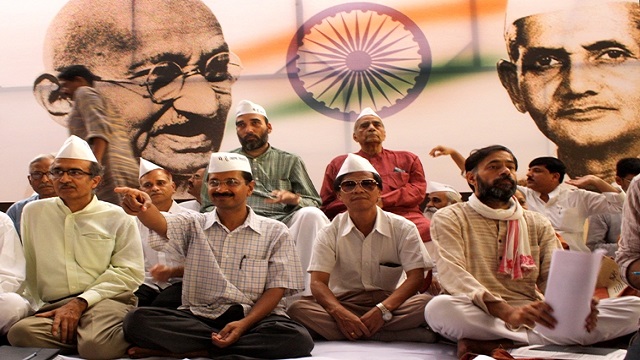Surveys may or may not present the situation clearly, but the only thing common is that AAP is getting at least 20% votes. Here is why we think AAP may be able to make the mark.
A survey carried out by Cicero Associates, a Delhi-based political opinion and consultancy firm, had showed Arvind Kejriwal’s Aam Aadmi Party coming only second to the BJP in upcoming Delhi assembly elections. Two days ago, AAP’s very own survey showed it to be the choice of 40% of voters. A recent survey by CNN-IBN and Hindustan Times has revealed that AAP does have a strong presence but Congress is still their favourite with 34% votes in hand. The three results may or may not present the situation clearly, but the only thing common is that AAP is getting at least 20% votes. Here is why we think AAP may be able to make the mark.
1. The country is well aware of the AAP’s history, which was a nation-wide campaign against corruption under the leadership of Anna Hazare, and it was a wide hit.
2. The party has been doing sincere ground level work which includes meeting the people on a daily basis, listening to their problems and, most important of all, trouble shooting.
3. It has already announced its candidates for the upcoming Delhi assembly elections this year for all the constituencies. The candidates are, again, from humble background and people can know everything about them from the AAP website.
4. The campaigning has already been started by AAP. The party is using modest and modern means of communication. They go door to door talking to the people and use social media or mobile services to organise rallies, meetings and protests.
5. The party has a funding crunch and most of the funds has been raised by the public, of which all the account can be found on the website.
6. It has a clear position of not joining either Congress or BJP given the anti-corruption campaign it runs.
7. It has been able to mobilise people on various issues.
8. The major membership drive that it ran saw women, workers and youth joining the party in large numbers which are a strong vote base.
9. People identify themselves with the issues that the party raises, i.e. local issues.
10. The public is fed-up of looking at the same faces who have delivered almost nothing to them indulging into scams. People want change.





